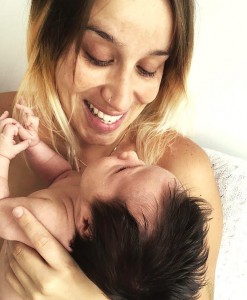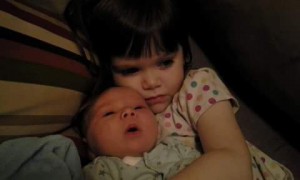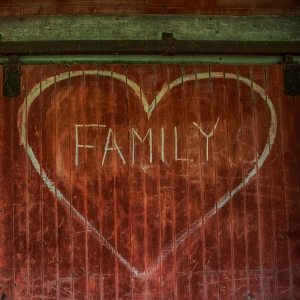 I can hardly believe I survived all the chaos of early new motherhood. At the beginning, I didn’t think I would — at least not with my sanity intact.
I can hardly believe I survived all the chaos of early new motherhood. At the beginning, I didn’t think I would — at least not with my sanity intact.
For nine months, I mentally prepared to share my life unconditionally with a new being. I also did my best to get ready for one of the most anticipated — and what I thought would be the hardest — moments of my life: labor. Looking back, the physical pain from delivering a baby feels insignificant compared to the hardship of early motherhood, especially the first 6 weeks.
I wondered what I could have done to be better prepared for early motherhood with my first baby. But nothing can really prepare you for this.
Editor’s note: Adjusting to parenthood can be challenging, and the emotions of early motherhood can be difficult to navigate. In-person support is especially critical. Attachment Parenting International (API) encourages all mothers to consider hiring a doula, to be in frequent contact with a breastfeeding specialist and to connect with their local API Leaders and API Support Groups. Additional considerations for a smooth transition to new parenthood are included in the first of API’s Eight Principles of Parenting: Prepare for Pregnancy, Childbirth and Parenting.
For the first weeks, I wondered what would happen to me. I am certain I am not alone here, moms. Not even all I have learned from yoga in the past years were very helpful, I must admit. The beginning of motherhood was a time when I felt completely taken up by my emotions.
I became moody due to the lack of sleep. I felt pain from my body healing itself. I cried when she cried. I thought “Not again!” when, after 10 minutes from falling asleep, I heard that tiny cry all over again. I found myself stripped of any patience, way beyond what I imagined. Indeed, I thought “What did I get myself into?”
I skipped showers because of lack of time. I looked really bad. I had my legs hairy all summer, and I had to get used to my new body. I cried out of frustration, “I don’t know what you want!”
There were days when my face did not manifest a single smile. I hated my husband, because he could do anything whenever he wanted — shower, sleep, go for a jog — while I had to plan a whole schedule just to brush my teeth, or do it in 10 seconds. I also resented the fact that he could get back to his normal life straight away, and I was stuck at home.
I felt this extreme guilt of not responding properly to what everyone expected of me as a mother or what I idealized of myself as a mother: that, at the time I held the baby for the first time, a magic would happen and my own needs and desires would simply vanish…that I would be complete and happy straight away, only for being a mom…as if this dark part of questioning, frustrations and pains simply don’t exist.
But slowly, the rewards came. As the days went by, I started to feel happier with tiny feats: when she smiled, when she stopped crying, when she finally slept. I was so thrilled when we could go through a diaper change without a single tear, or when I could put her in the stroller and go for a 10-minute walk to pick up some groceries. I was deeply grateful when my sweet and calm words could soothe her, even if she was screaming her lungs out and could barely hear me.
I also rediscovered joy in the most trivial things: drinking water, having a shower, a tight hug, a quick chat with a friend, sleeping, my mom cooking for me, my daughter’s smile, her smell. I love and value these things so much more now!
Oh motherhood! The contrast between devoutness and empowerment at the same time! My vulnerabilities gave way to strength and resilience as I realized I was capable of all this. I did not know my body was capable of producing something to nourish her so perfectly. My embrace, my arms and my words can transform the loudest scream into a timid smile. My smell, hinting she is safe, changes her face completely.
And, all of a sudden, me again! A couple of weeks ago, I wondered how quickly this phase would pass, but now I hope it does not go so fast. I am anxiously aware that this dependency will someday be gone, and I will miss the time when all she needed was me.



